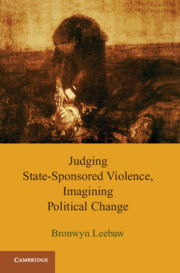Book contents
- Frontmatter
- Contents
- Acknowledgments
- 1 Introduction: Transitional Justice and the “Gray Zone”
- 2 Human Rights Legalism and the Legacy of Nuremberg
- 3 A Different Kind of Justice: South Africa's Alternative to Legalism
- 4 Political Judgment and Transitional Justice: Actors and Spectators
- 5 Rethinking Restorative Justice
- 6 Remembering Resistance
- 7 Conclusion: The Shadows of the Past
- Select Bibliography
- Index
- References
5 - Rethinking Restorative Justice
Published online by Cambridge University Press: 05 June 2012
- Frontmatter
- Contents
- Acknowledgments
- 1 Introduction: Transitional Justice and the “Gray Zone”
- 2 Human Rights Legalism and the Legacy of Nuremberg
- 3 A Different Kind of Justice: South Africa's Alternative to Legalism
- 4 Political Judgment and Transitional Justice: Actors and Spectators
- 5 Rethinking Restorative Justice
- 6 Remembering Resistance
- 7 Conclusion: The Shadows of the Past
- Select Bibliography
- Index
- References
Summary
South Africa's TRC articulated an ambitious and influential challenge to human rights legalism. In so doing, the TRC also challenged conventional wisdom regarding the path of innovation and change in human rights norms and practices. However, scholarly debate on the legacy of the TRC has been limited in important ways. Most notably, critics and supporters alike have tended to identify restorative justice very closely with therapeutic justice. This close identification of restorative and therapeutic justice departs from the theoretical premises that animated the early development of the TRC and elides the theoretical innovations of those who contributed to the TRC's restorative justice framework.
In this chapter, I develop a conceptual distinction between restorative and therapeutic justice and suggest an alternative way to understand how truth commissions might contribute to restorative justice. The first section of the chapter takes a closer look at restorative justice theory as articulated by scholars that have defined the field. It argues that what makes restorative justice appealing, but also problematic, as a response to systematic injustices and political violence is the fact that the framework allows political judgment to influence the adjudication process. More specifically, restorative justice is based on the view that addressing individual harms requires a response to underlying conflicts and inequalities. However, it relies on a communitarian approach to political judgment that is in tension with this commitment.
- Type
- Chapter
- Information
- Judging State-Sponsored Violence, Imagining Political Change , pp. 119 - 144Publisher: Cambridge University PressPrint publication year: 2011



